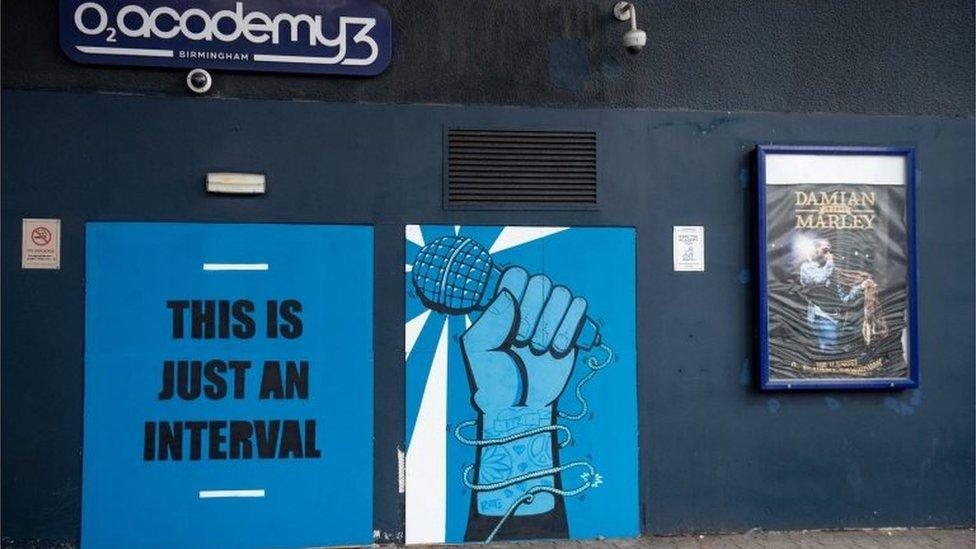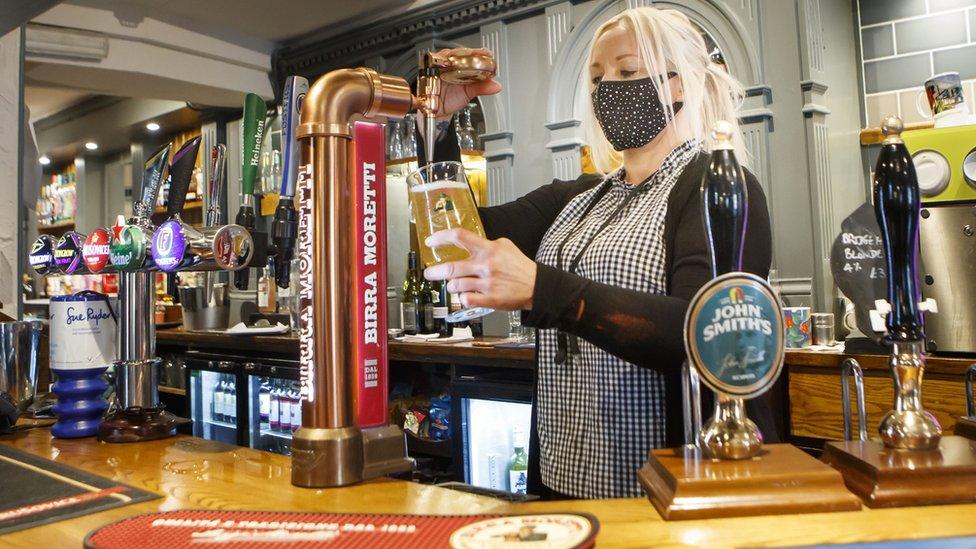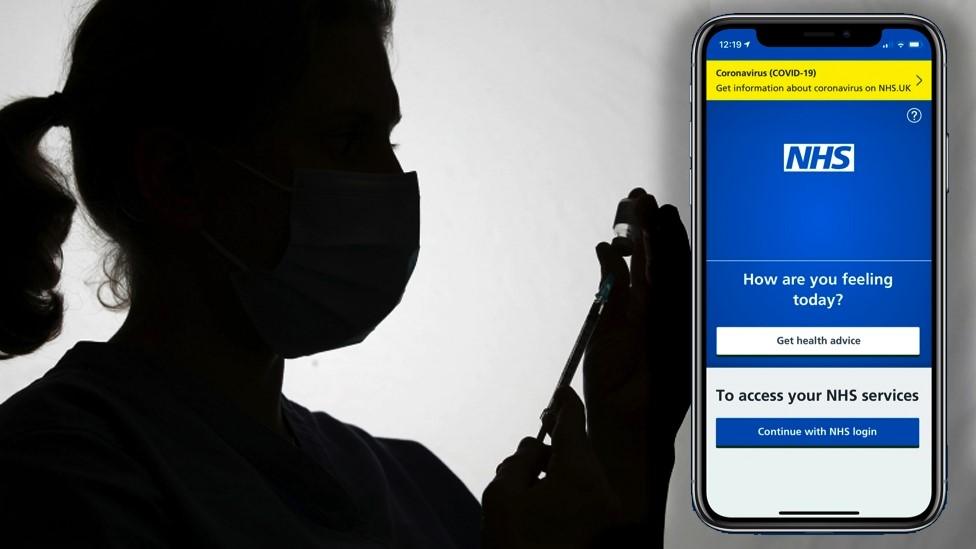Covid: PM drops big hints about post-lockdown life
- Published
The PM says it seems "wholly responsible" for care companies to consider requiring vaccinations for their workers
Prime ministers' appearances in front of Parliament's most senior MPs are rarely short of news.
On Wednesday, the prime minister suggested that if he and the EU can't make peace over vaccines, he might be willing to hit back, if they take dramatic action.
He suggested that before too long, the UK's nearest continental neighbour, France, might end up on the list of countries that attract the toughest travel restrictions, the 'red list', even though that would cause, as he detailed, significant disruption.
Most noticeably however, the PM gave some big hints at what life might look like as we come out of the most stringent lockdowns.
Ministers, and the administrations in Belfast, Edinburgh and Cardiff, have set out plans for how the rules they imposed will be rolled back, as long as the virus ticks down in the way that everyone hopes and the vaccine programme continues.
But there are still significant question marks over what will take the place of the laws we have lived with for so long.
In other words, how does the government propose to manage the disease in the long term when lockdown ends?
Mr Johnson today was happy to sketch out how that question could in part be answered, in a way that not all of his party will like.
He made clear that he was willing to countenance the idea of 'jabs for jobs' - suggesting that it was responsible for care home owners for example, to be making vaccination compulsory for their staff, those many thousands of workers who look after some of society's most vulnerable.
And the prime minister held open the possibility that bars and restaurants might ask for 'papers for pints', suggesting that the use of vaccine certificates could be up to individual landlords.
Ministers are reviewing how any of these kinds of arrangements would work in practice.
The government is not going to mandate that everyone is jabbed.
When tests are widely and freely available, proof of a negative test, is also being considered as a tool that could be used to help venues open up, and life start getting back to something like normal.
No one is likely to be forced to take one.

Will testing be used to help venues like the O2 Academy in Birmingham reopen?
But just as school pupils are taking them regularly now, and increasing numbers of workplaces, the normalising of Covid testing is a valuable tool.
If tests are available in walk-in centres, to be sent to homes, or even distributed outside a pub or theatre, it's harder to argue that any member of the public is excluded.
The government is reluctant to make any of this compulsory for everyone, whatever the circumstance. But it seems that proving our Covid status, through the vaccination, or a test, is likely to be part of our lives in the medium term.
- Published25 March 2021

- Published27 February 2021

